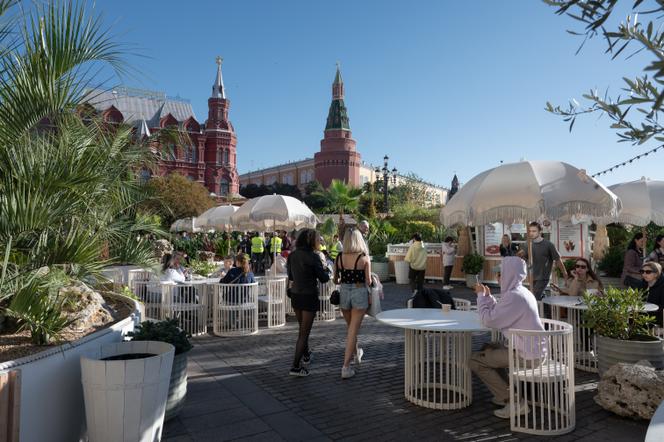


"Look at Moscow and its booming metro: Are we in an economic crisis, stricken by sanctions? No!" More than two and a half years after the start of Russia's "special operation" in Ukraine, this anonymous Muscovite, who fits the typical profile of the affluent middle class, said he was torn between, on the one hand, his opposition to the Kremlin regime and the military offensive and, on the other, the fact that his daily life has remained almost unchanged in an apparently flourishing economy.
The rapid development of Moscow's public transportation system is just one example of this paradox. Since February 2022, economic sanctions imposed by the European Union and the United States have restricted Russia's financial potential and reduced imports of Western technologies, including in the transportation sector. Nonetheless, on September 7, the capital enjoyed the luxury of opening its 16th metro line, which was inaugurated by Vladimir Putin himself. The Russian president's message was twofold: Russia continues to grow, and Western sanctions are a failure.
"The municipal budget is not affected by sanctions. Admittedly, there are sometimes logistical problems, longer lead times and higher costs. But the imported equipment always gets here, some of it Western and some of it Chinese," said one of the European partners involved in modernizing Moscow's infrastructure.
Like the rest of the Russian economy, the construction and transportation sectors have not been immune to the uncertainties associated with Western sanctions. IT servers, for example, are crammed with computers from the West. As the American warranties will no longer cover the replacement of parts, it's become necessary to fall back on new imports from "friendly countries" − former Soviet republics, China, Turkey and India. Another example: To get around the Western embargo on Russian oil, Moscow has turned to one of its main allies in the Mediterranean, Morocco, where its cargoes are transported, before being re-exported to Europe.
No sector has been exempt from the effects of sanctions, with logistics and banking rapidly becoming impacted in 2022. But many materials imported from Europe by factories for over a decade have been replaced by new equipment, notably from Belarus. Supply levels have been maintained thanks to local production − import substitution which has encouraged growth − but also to parallel imports.
Western products banned from export to Russia can be purchased in "third countries" such as Turkey or China. Ultimately, factories have been able to do just that, with the approval of the authorities in Moscow: Ordinances list the products that benefit from this practice, which uses legal loopholes. Some sectors have even shown surprising signs of recovery. The giant AvtoVAZ and the entire automotive industry have adapted to the departure of European companies. In order to modernize their equipment and replace Western imports, they have invested heavily, taking advantage of substantial state aid.
You have 50.6% of this article left to read. The rest is for subscribers only.
